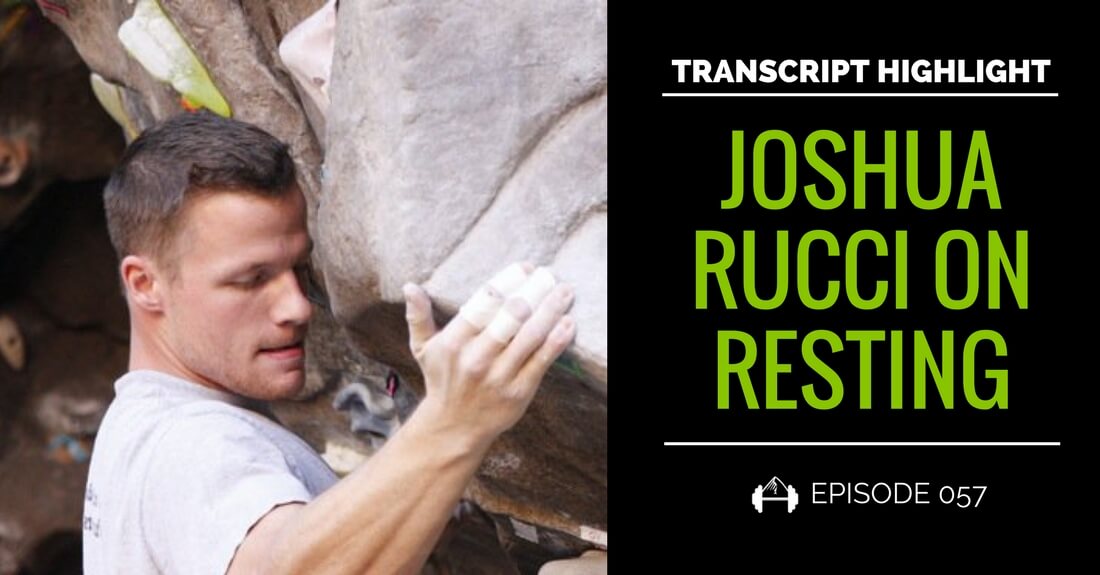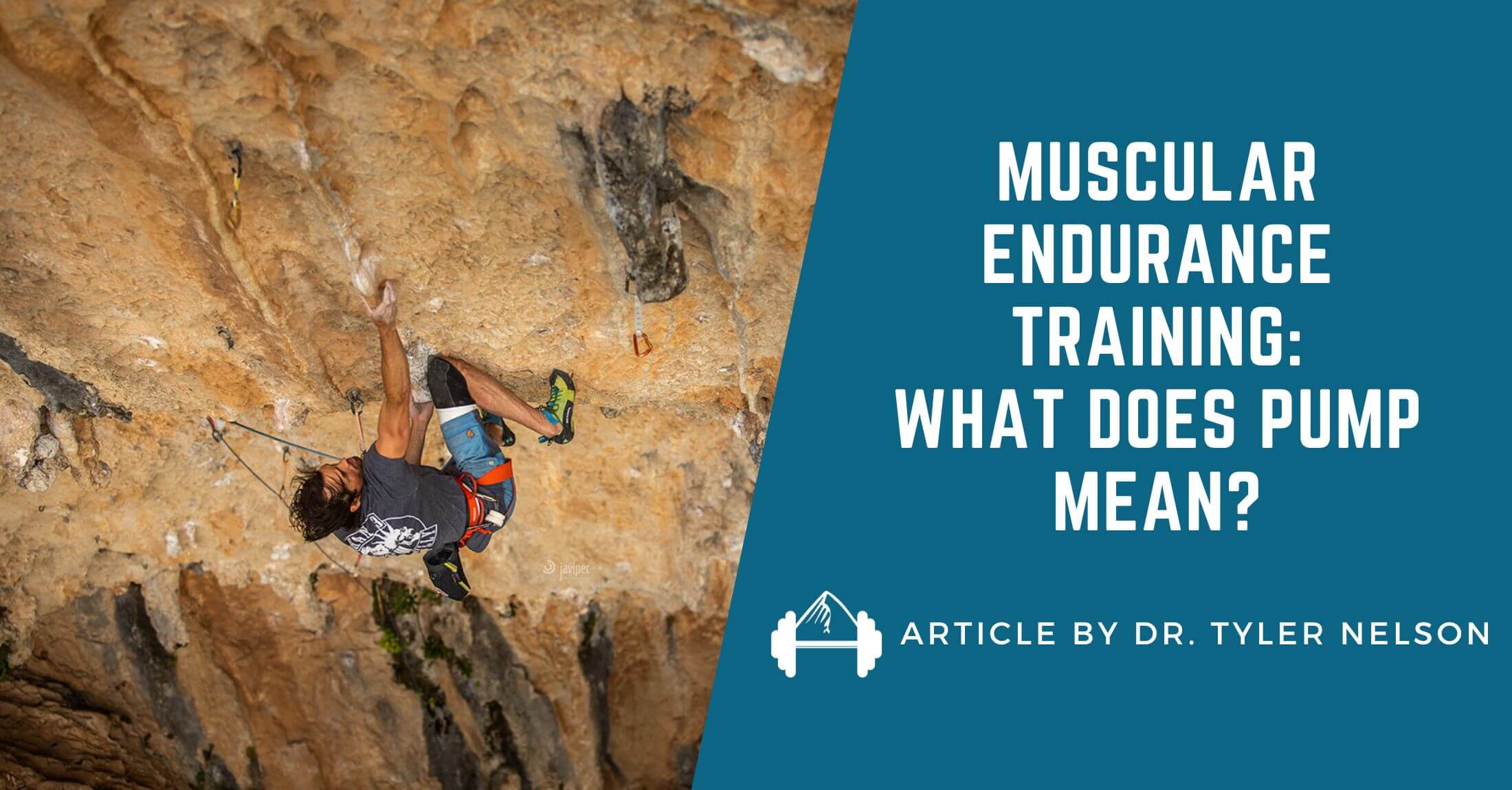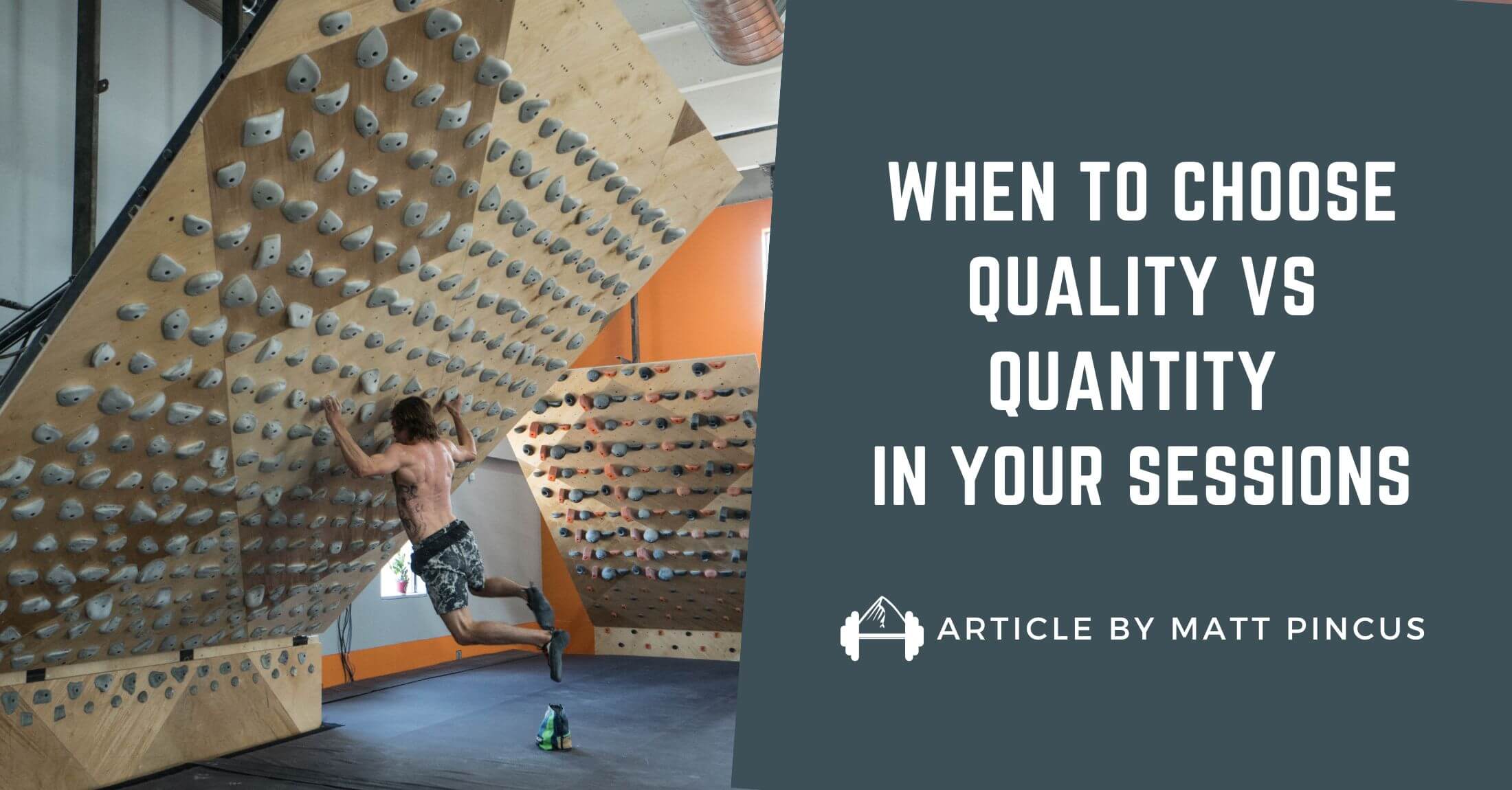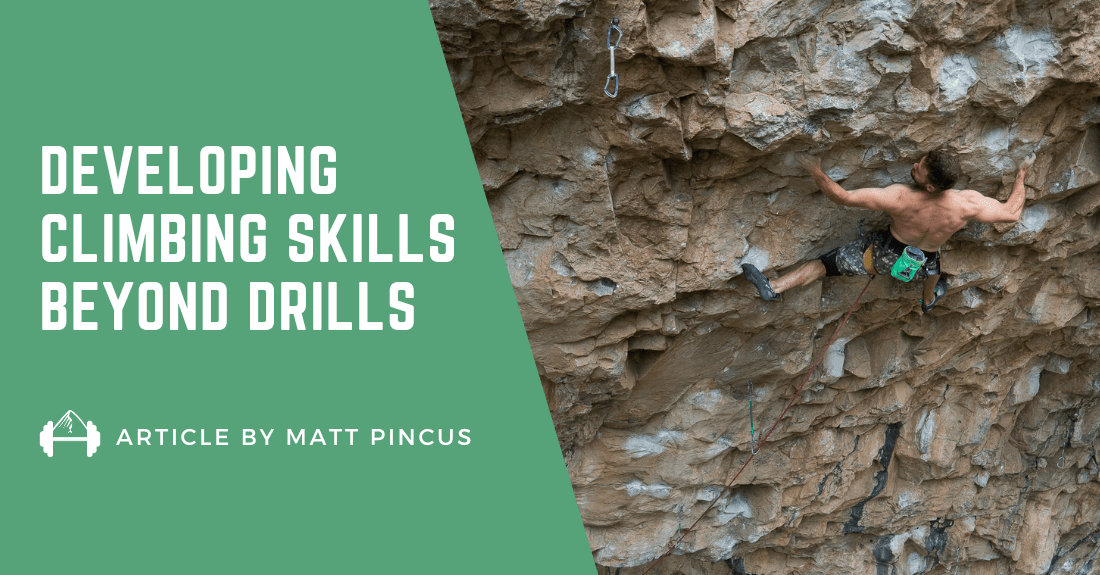Most of us want to climb all the time. While there’s obviously nothing wrong with loving climbing, we can’t do it every day. Resting is important. Whether we are on a trip or simply motivated to train, we tend to think of rest days as something we have to get through.
The reality, however, is that resting is when our bodies adapt and get stronger. When resting, our bodies respond to the stress that climbing and training puts on them and adapt. Without rest, you don’t get stronger. You just continue to deplete your body. In reality, all this means is that it’ll be even longer before you can climb at 100% again.
To highlight the importance of rest and help you restructure how you view rest days, here’s an excerpt from Joshua Rucci’s TrainingBeta Podcast episode. Joshua is a climber and a collegiate strength and conditioning coach in the SEC. He definitely know’s his stuff. The entire episode is full of high-quality information about how we can train more effectively.
Give it a read yourself and if you like what you see be sure to check out the full episode and transcript by clicking through below!
Joshua Rucci on Resting
Neely Quinn: On the topic of resting, I just took a week off. I kind of tweaked my wrist a little bit. This whole week I really haven’t done very much. I’ve gone on walks. I climbed really easy one day and by the end of this week, I’m kind of like, “Well, have I lost everything I gained?” I think that a lot of people ask themselves that, and what are your thoughts on that? How long have you seen it take for someone to just completely lose what they’ve gained?
Joshua Rucci: Well, again, it depends on what level you were at beforehand, right? I mean, let’s be honest. You really think that if Jonathan Siegrist takes a week off – you really think he can’t walk back out to the crag and send super hard?
Neely Quinn: Well, so he doesn’t think he can and that’s a conversation we have a lot of times. I know. It’s like ingrained in us.
Joshua Rucci: What I would say to him is, “You need to restructure your thought about rest.” Rest is when your body adapts and gets stronger. Training is the impetus for that adaptation to have, but rest is when it happens. What I would say to you is, “You know what? The first day or two when you get back out, you may not feel great.”
Don’t expect if you just took a week off that all of a sudden you’re going to walk into the gym and just feel like a superhero. It’s not going to happen. You’ve got to knock the rust off for a day or two, you’ve got to get your nervous system firing again and then towards the end of that week, you’re going to start realizing some of the benefits of the rest. If you give yourself/if you train hard enough for adaptation to occur during that week of rest, then you’re going to start to realize that.
I would say to anybody, “Hey! Rest is when you’re getting stronger. Think of it that way. You’re not getting weaker, you’re getting stronger when you’re resting.” Now, if you rest for three months, you’re going to get weaker.
Neely Quinn: I know. I’ve done that.
Joshua Rucci: Yeah, but that’s to be expected. You haven’t climbed in three months coming off of whatever, but when it’s a week – if you train for six weeks, hard, and by the end of the six weeks you’re like, “Man. I need to rest. I really need to rest. I’m tired. I’m starting to get aches and pains. Blah, blah, blah. My peformance is starting to go down…” you rest for 7-10 days and it’s active, and maybe you do go climb a little bit but it’s easy? Yeah, that first week back you might not feel like a superhero but give it time and let that training transfer over and let it build up because, again, your nervous system needs to get regoing again/kind of restarted and then you’re going to start to see the realization of your training.
Neely Quinn: Okay.
Joshua Rucci: So, you gotta be patient. I’m the same way. I’m on a long trip or whatever it is and I can’t climb and that first day it’s like, “Man, I feel like a ton of bricks,” you know? But by day two or three I actually feel pretty good and it’s like, “Oh, I sent that problem I never sent before.” You know what I mean? It starts to happen but you’ve got to be patient and you’ve got to reframe that thought process of rest as getting weak when actually you’re getting stronger while you’re resting because your body is making the adaptations.
Neely Quinn: Yeah. I hope everybody just heard that loud and clear.
Full Episode/Transcript: TBP 057:: Joshua Rucci Compares Training College Athletes to Climbers
(photo courtesy of
Other Articles You Might Like:
- Why Do I Suck At Climbing Some Days?!? Part 3: Efficient Training
- Periodized Training for Climbing: Different Types and Pros & Cons
- How Breathing Can Increase Your Strength and Power
- Skill Acquisition and Technique






Leave A Comment